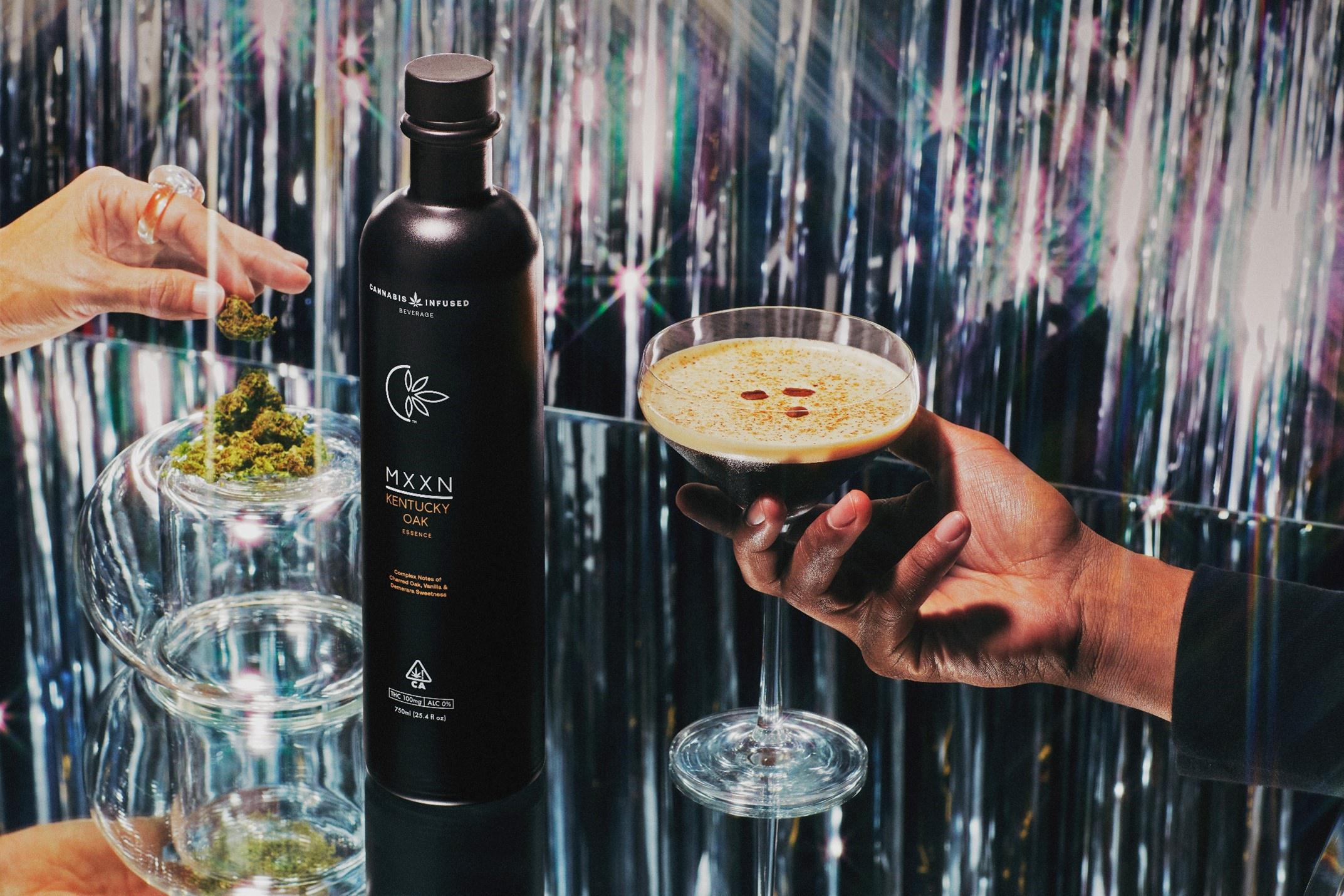
This is part two in a series on the cannabis beverage industry. Click here for part one.
Cannabis cocktail time
Spirit industry veteran Darnell Smith launched MXXN (pronounced ‘moon’) in 2021 as non-alcoholic one-to-one replacements for gin, tequila and bourbon aimed at customers “who want to cut back on the booze, but not the buzz.” The names of each product evoke the spirit it aims to replace: Kentucky Oak for bourbon, London Dry for gin and Jalisco Agave for tequila. The products are meant to be additions to the bar cart for those who want to enjoy the rituals and social aspects of cocktails without the alcohol.
The cannabis category that Mxxn joins is growing rapidly, but also presents challenges to entrepreneurs moving in. Along with the typical battles cannabis companies face like trying to access capital and banking services, and making a profit without being allowed to deduct typical business expenses from their taxes, beverage companies face additional roadblocks. There is generally no equivalent to a “bar” where adults can socialize and consume cannabis the way they can alcohol. Consumers purchase the beverages from a dispensary and have to take it home or elsewhere. The availability of consumption lounges would drive sales significantly and allow the beverages to compete more directly with alcoholic beverages.
Launching his company and product line, Smith’s goal for the new MXXN products is to “get liquid to lips.” i.e. getting people to give the beverages a try. A critical opportunity for the company is tapping into cocktail culture he said, but without consumption lounges he will do that using an e-commerce site and by increasing distribution with retailers.
Cannabis beverage as tequila substitute
MORE FOR YOU
Manufacturing presents another significant challenge to cannabis beverage makers. Cannabis can not cross state lines so each beverage has to be brewed and bottled in its home state. That makes it impossible to achieve the economies of scale and associated cost savings that alcoholic drink companies can achieve.
Smith’s other company goal is to become part of the conversation around social equity in the cannabis industry. He plans to do that by working with equitable and diverse vendors throughout the supply chain and by donating some of the company’s profits “to organizations working to pass federal marijuana reform that acknowledges the disproportionate harm faced by low-income, Black, and Latinx communities, and works toward repairing this harm.”
And like many new cannabis companies, one of MXXN’s biggest challenge is to establish itself with customers and retailers as the regulatory landscape continues to evolve.
Squeeze cannabis beverages
On the larger and more established end of the cannabis beverage spectrum, Curaleaf’s cannabis beverage entry Select Squeeze products are available in 19 states. The small bottles squeeze out the precise amount of liquid containing 5mg of THC and are meant to add to any drink, and come in Hint of Sweet, Strawberry Lemonade, Watermelon and Lemon Lime flavors. The product is more likely to be purchased by new cannabis consumers according to Kate Lynch, senior vice president of marketing for the company, while traditional user still mostly prefer to smoke or vape. The discretion of the small container (pocket-size), fast-acting effect, and lack of hangover are some of the product’s selling points.
In 2022, Curaleaf plans to test market ready-to-drink seltzers in some of their largest markets and roll them out on a larger scale “once we have the right learnings,” according to Lynch. It will also will continue developing the Squeeze product line.
Will Curaleaf team up with a mainstream beverage brand? Lynch says he company is “constantly having discussions” and “looking for the right match made in heaven!”







